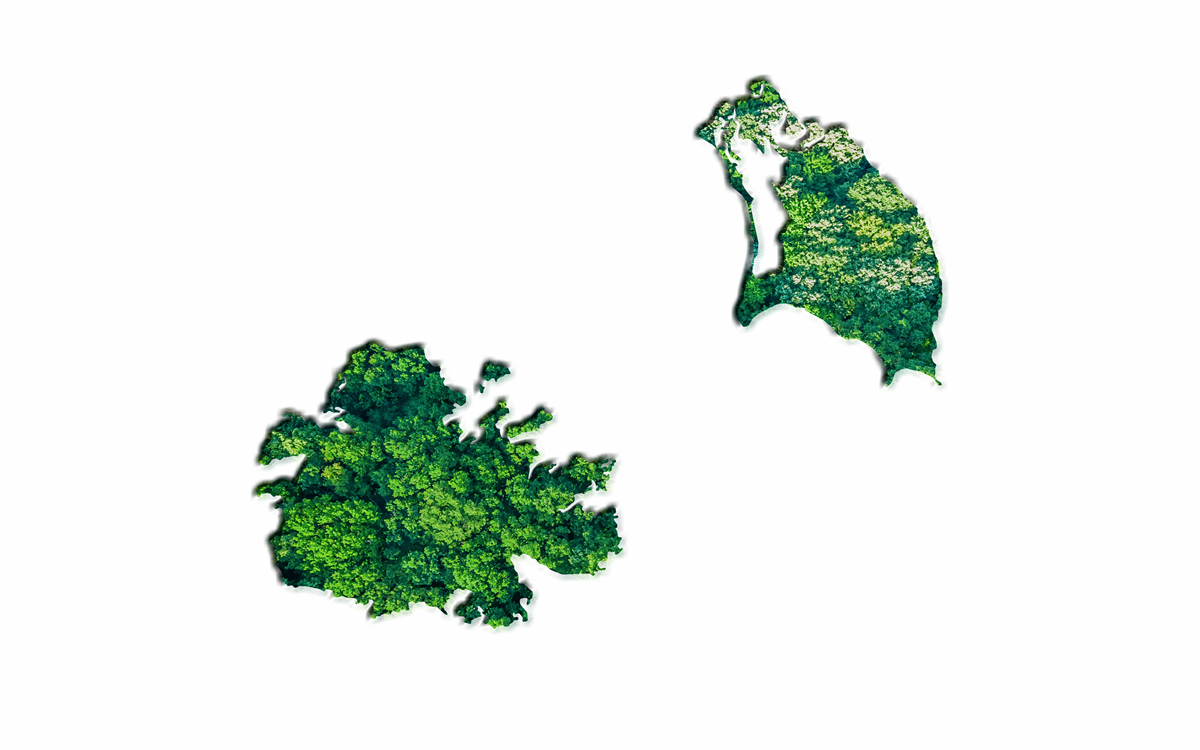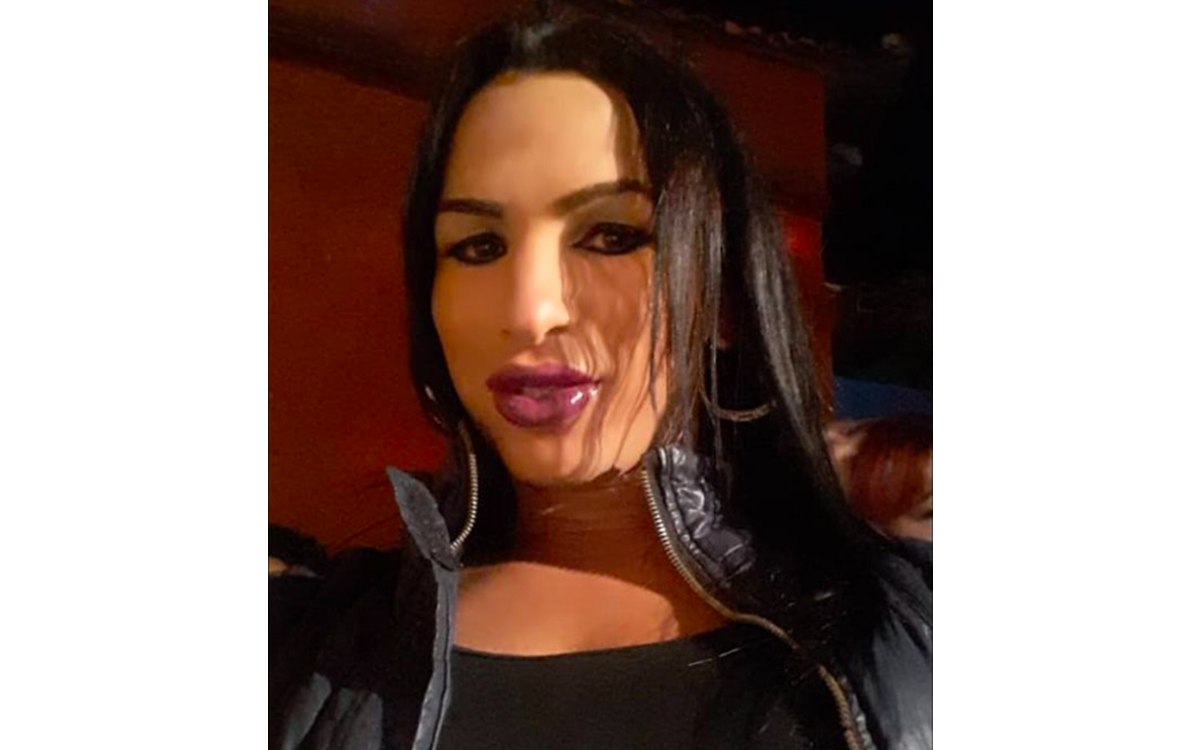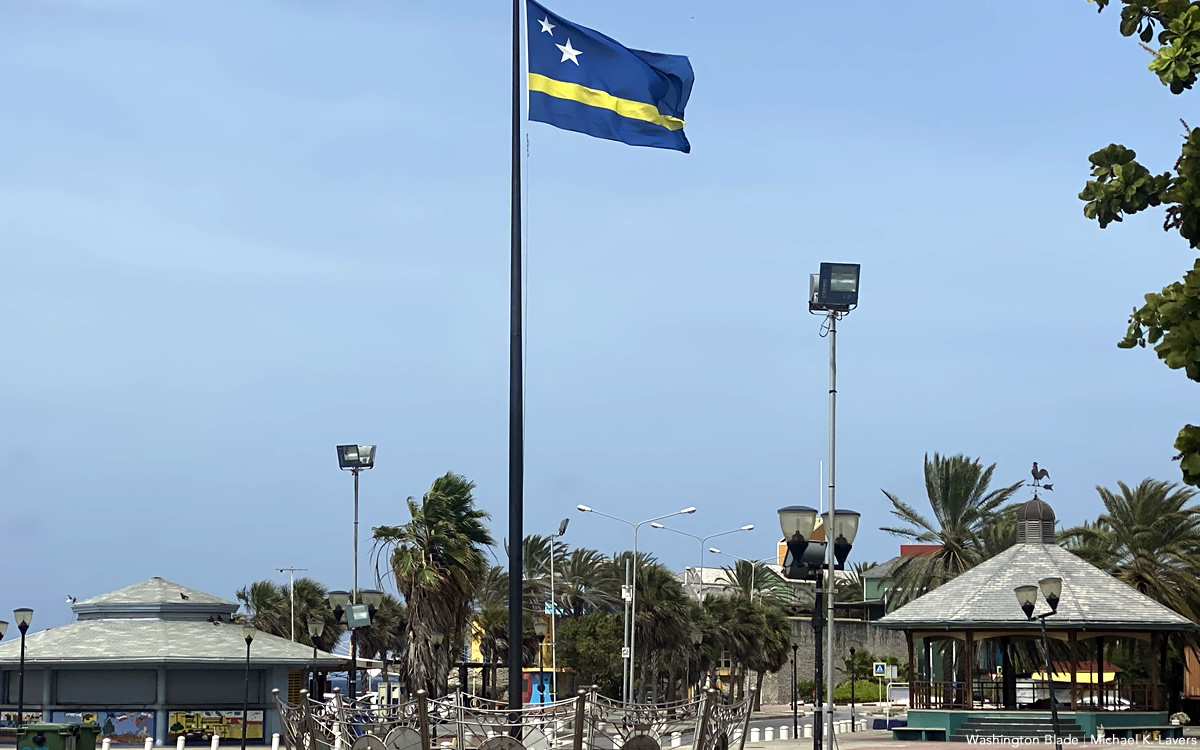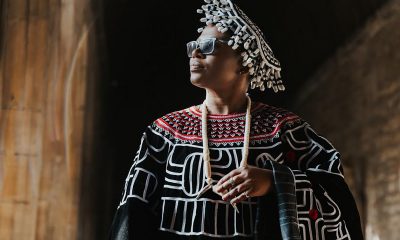Caribbean
Antigua and Barbuda sodomy law struck down
Unclear whether government will repeal decision

A judge on Tuesday ruled provisions of a law that criminalizes consensual same-sex sexual relations in Antigua and Barbuda are unconstitutional.
High Court Judge Marissa Robertson, who sits on the Eastern Caribbean Supreme Court, a regional judicial authority, in her ruling said sections 12 and 15 of the country’s Sexual Offenses Act 1995 “are unconstitutional as they contravene” Antigua and Barbuda’s constitution.
“Section 12 of the Sexual Offenses Act 1995 offends the right to liberty, protection of the law, freedom of expression, protection of personal privacy and protection from discrimination on the basis of sex, in so far as section 12 of the Sexual Offenses Act 1995 is inconsistent with the rights of persons sixteen (16) years and older to engage in consensual sexual intercourse per anum in private, and to the extent of that inconsistency section 12 of the Sexual Offenses Act 1995 is void,” said Robertson.
Robertson in her decision said section 15 of the Sexual Offenses Act 1995 “offends the right to liberty, protection of the law, freedom of expression, protection of personal privacy and protection from discrimination on the basis of sex, in so far as section 15 of the Sexual Offenses Act 1995 is inconsistent with the rights of persons sixteen (16) years and older to engage consensually and in private in the sexual acts described in section 15(3), and to the extent of that inconsistency section 15 of the Sexual Offenses Act 1995 is void.”
Orden David, a gay man who works for the Antigua and Barbuda Health Ministry and is the executive director of Meeting Emotional and Social Needs Historically (MESH) Antigua and Barbuda, a support group for LGBTQ and intersex people in the country, and Women Against Rape, an NGO that works with those who are impacted by gender-based violence, formally challenged the law.
“This judgment is a significant milestone in the history of Antigua and Barbuda,” said Women Against Rape President Alexandrina Wong on Wednesday during a virtual press conference the Eastern Caribbean Alliance for Diversity and Equality (ECADE), a regional LGBTQ and intersex rights group, organized.
“Members of the LGBT community and consenting adults who choose to engage in intimacy can now breath a sigh of relief, because at least there is safety under the law,” added Wong.
ECADE Executive Director Kenita Placide, who is based in St. Lucia, during the press conference described the ruling as a “landmark decision.”
“The process of litigation is important, as it underscores how these laws contribute to the stigmatization of LGBTQI people, how they legitimize hate speech, discrimination and violence and tears at the fabric of our society,” said Placide in a statement. “Our governments have sworn to protect and uphold the rights of all and act in a manner that promotes the prosperity and well-being of all. This judgment is in keeping with this commitment.”
Antigua and Barbuda Sen. Aziza Lake also welcomed Tuesday’s ruling.
“It is a long overdue development,” Lake told the Washington Blade. “The government has no business in the bedrooms of consenting adults.”
Colonial-era laws that criminalize homosexuality remain in place in St. Lucia and other former English colonies in the Caribbean.
The Belizean Court of Appeal in late 2019 upheld a ruling that struck down the country’s sodomy law. A judge on the Trinidad and Tobago High Court in 2018 struck down its statute that criminalized consensual same-sex sexual relations.
The Inter-American Commission on Human Rights last year in a landmark decision said Jamaica must repeal its sodomy law. ECADE noted similar cases have been filed in St. Lucia, Barbados and St. Kitts and Nevis.
Then-British Prime Minister Theresa May in 2018 said she “deeply” regrets colonial-era criminalization laws the U.K. introduced. Nick Herbert, a member of the British House of Lords who currently advises embattled Prime Minister Boris Johnson on LGBTQ and intersex issues, last December told the Blade during an interview in D.C. that his country has a “historic responsibility for these laws and their legacy.”
“Great news from Antigua and Barbuda as the Eastern Caribbean Supreme Court strikes down laws criminalizing consensual same-sex activity,” tweeted Herbert on Wednesday. “[It is a] historic achievement for the people of Antigua and Barbuda and another welcome step forward for LGBT+ rights globally.”
Great news from Antigua and Barbuda 🇦🇬 as the Eastern Caribbean Supreme Court strikes down laws criminalising consensual same-sex activity.
An historic achievement for the people of Antigua and Barbuda and another welcome step forward for #LGBT+ rights globally 🏳️🌈 https://t.co/LKkJAuUKl9 pic.twitter.com/eZeKxqFt0T
— Nick Herbert (@nickherbertcbe) July 6, 2022
The Associated Press reported the Antigua and Barbuda government has yet to announce whether it will appeal Robertson’s ruling.
Glenroy Murray, executive director of J-FLAG, a Jamaican LGBTQ and intersex rights group, on Wednesday told the Blade he remains hopeful the decision will resonate throughout the region.
“I am excited to see Antigua and Barbuda have this ruling and I am hopeful for what this will mean for the rest of the eastern Caribbean, given the similarities of their constitutional framework,” said Murray. “The ruling demonstrated how the strategic litigation in other parts of the Caribbean have led to positive impacts and that trend bodes well for LGBTQ+ rights in the region overall.”
Murray further noted the ruling “will not directly impact the current challenge to Jamaica’s anti-sodomy laws, which has lingered far too long in our courts.” Murray added “it definitely sends a positive signal to our legislators that times are changing in the Caribbean.”
Donnya Piggott, an activist from Barbados, is the co-founder of Pink Coconuts, an online platform for LGBTQ and intersex travelers. Piggott is also Open for Business’ Caribbean Campaign lead.
Piggott echoed Murray’s thoughts about the ruling’s impact in the region.
“It comes at critical time for Caribbean people. It certainly sends the right message for the society and Antiguans have a lot to be proud of right now,” Piggott told the Blade.
“I hope it has a ripple effect, across the region,” added Piggott. “We need more inclusive Caribbean countries, talented LGBTQ people are leaving the Caribbean and seeking opportunities in larger countries. Growing economies can’t afford that and if we are to grow and develop as a people and as a region — we need to begin to really build more inclusive societies.”
Trinidad and Tobago
Trinidad and Tobago recriminalizes homosexuality
Court of Appeal on March 25 overturned 2018 ruling

An appeals court in Trinidad and Tobago has recriminalized consensual same-sex sexual relations in the country.
Jason Jones, an LGBTQ activist from Trinidad and Tobago who currently lives in the U.K., in 2017 challenged Sections 13 and 16 of the country’s Sexual Offenses Act. High Court Justice Devindra Rampersad the following year found them unconstitutional.
The country’s government appealed Rampersad’s ruling.
Court of Appeal Justices Nolan Bereaux and Charmaine Pemberton overturned it on March 25. The Daily Express newspaper reported Justice Vasheist Kokaram dissented.
“As an LGBTQ+ citizen of Trinidad and Tobago, this regressive judgement has ripped up my contract as a citizen of T&T and again makes me an unapprehended criminal in the eyes of the law,” said Jones in a statement he posted to social media. “The TT Court of Appeal has effectively put a target on the back of LGBTQIA+ people and made us lower class citizens in our own country.”
Antigua and Barbuda, St. Kitts and Nevis, Barbados, and Dominica are among the countries that have decriminalized consensual same-sex sexual relations in recent years.
The Inter-American Commission on Human Rights in 2021 issued a decision that said Jamaica must repeal its colonial-era sodomy law. The Jamaican Supreme Court in 2023 ruled against a gay man who challenged it.
A judge on St. Vincent and the Grenadines’s top court last year dismissed two cases that challenged the country’s sodomy laws.
Jones in his statement said he “will be exercising my right of appeal and taking this matter to the” Privy Council, an appellate court for British territories that can also consider cases from Commonwealth countries.
King Charles III is not Trinidad and Tobago’s head of the state, but the country remains part of the Commonwealth.
“I hope justice will be done and these heinous discriminatory laws, a legacy of British colonialism, will be removed by the British courts,” said Jones.
Cuba
Transgender woman who protested against Cuban government released from prison
Brenda Díaz among hundreds arrested after July 11, 2021, demonstrations

A transgender woman with HIV who participated in an anti-government protest in Cuba in 2021 has been released from prison.
Luz Escobar, an independent Cuban journalist who lives in Madrid, on Saturday posted a picture of Brenda Díaz and her mother on her Facebook page.
“Brenda Díaz, a Cuban political prisoner from July 11, was released a few hours ago,” wrote Escobar.
Authorities arrested Díaz in Güira de Melena in Artemisa province after she participated in an anti-government protest on July 11, 2021. She is one of the hundreds of people who authorities took into custody during and after the demonstrations.
A Havana court in 2022 sentenced Díaz to 14 years in prison. She appealed her sentence, but Cuba’s People’s Supreme Court upheld it.
Escobar in her Facebook post said authorities “forced” Díaz to “be in a men’s prison, one of the tortures she suffered.” Mariela Castro, the daughter of former Cuban President Raúl Castro who directs the country’s National Center for Sexual Education, dismissed reports that Díaz suffered mistreatment in prison. A source in Cuba who spoke with the Washington Blade on Saturday said Díaz was held in a prison for people with HIV.
The Cuban government earlier this week began to release prisoners after President Joe Biden said the U.S. would move to lift its designation that the country is a state sponsor of terrorism. The Vatican helped facilitate the deal.
U.S. Sen. Marco Rubio (R-Fla.), who is Cuban American, on Wednesday criticized the deal during his confirmation hearing to become the next secretary of state. President-elect Donald Trump, whose first administration made the terrorism designation in January 2021, will take office on Monday.
Caribbean
Dutch Supreme Court rules Aruba, Curaçao must allow same-sex couples to marry
Ruling likely also applicable to St. Maarten

The Dutch Supreme Court on Friday ruled Aruba and Curaçao must extend marriage rights to same-sex couples.
The Joint Court of Justice of Aruba, Curaçao, St. Maarten and of Bonaire, St. Eustatius, and Saba in 2022 ruled in favor of marriage equality in two cases that Fundacion Orguyo Aruba and Human Rights Caribbean in Curaçao filed.
The governments of the two islands appealed the ruling.
The Joint Court of Justice of Aruba, Curaçao, St. Maarten and of Bonaire, St. Eustatius, and Saba has jurisdiction over Aruba, Curaçao, and St. Maarten —three constituent countries within the Netherlands — and Bonaire, St. Eustatius, and Saba — which are special municipalities within the kingdom.
Same-sex couples have been able to legally marry and adopt children in Bonaire, St. Eustatius, and Saba since 2012.
Aruba, Curaçao, and St. Maarten must recognize same-sex marriages from the Netherlands, Bonaire, St. Eustatius, and Saba. Aruba’s registered partnership law took effect in 2021.
“Today, we celebrate a historic victory for the dignity and rights of LGBT individuals in Curaçao and Aruba,” said Human Rights Caribbean President Janice Tjon Sien Kie on Friday in a statement.
Aruban Sen. Miguel Mansur, who is gay, on Friday described the ruling to the Washington Blade as “an amazing victory which applies to Aruba, Curaçao, and by implication St. Maarten.”
“Aruba progresses into a society with less discrimination, more tolerance, and acceptance,” he said.
Melissa Gumbs, a lesbian St. Maarten MP, told the Blade the ruling “could very well have some bearing on our situation here.”
“I’m definitely looking into it,” she said. “We’re researching it to see what is the possibility, and also in touch with our friends in Aruba who are, of course, overjoyed with this ruling.”
Cuba, Puerto Rico, the U.S. Virgin Islands, St. Martin, St. Barts, Martinique, and Guadeloupe, are the other jurisdictions in the Caribbean in which same-sex couples can legally marry.
Mansur said the first same-sex marriages in Aruba will happen “very soon.”
“There are two couples ready to wed,” he told the Blade.
-

 Opinions5 days ago
Opinions5 days agoIt’s time for new leadership on the Maryland LGBTQIA+ Commission
-

 The White House4 days ago
The White House4 days agoWhite House does not ‘respond’ to reporters’ requests with pronouns included
-

 Arts & Entertainment5 days ago
Arts & Entertainment5 days ago‘Gay is Good’ Pride Pils Can Celebrates Frank Kameny’s 100th Birthday for WorldPride in D.C.
-

 Sponsored5 days ago
Sponsored5 days agoTHC Drinks: What You Should Know About Cannabis Beverages












